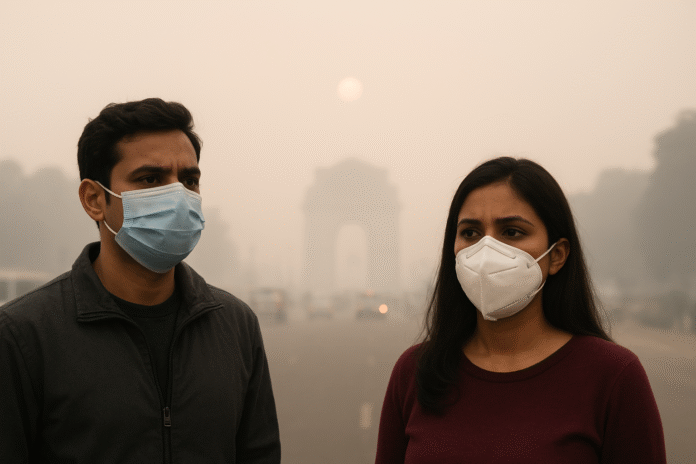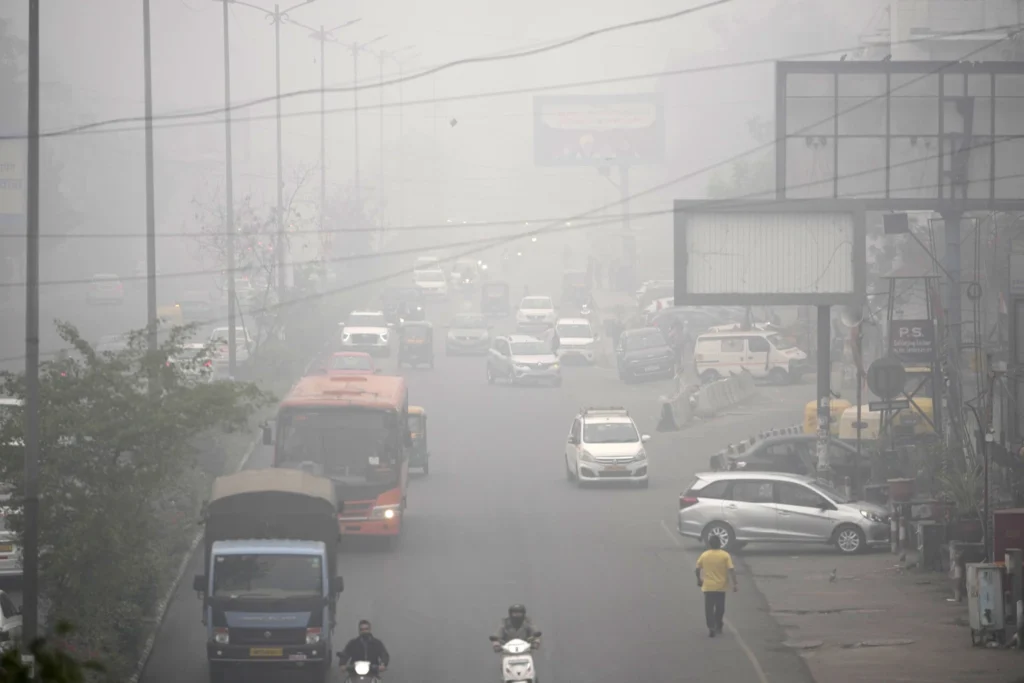
Every winter offers a dense sheet of smog in northern India. Delhi, Gurugram, Noida, Lucknow, and Chandigarh are seeing most of their settlements being enveloped in thick air. The Air Quality Index (AQI) may often be into the “severe” zone, resulting in a hack of the respiratory systems, teary eyes, and duck-walks. Thus, air pollution has plagued India’s sky for so long that it has almost turned into a repetition of public health disasters affecting all walks of public life, productivity, and future well-being. Now, amidst the increasing blanket of smog, reducing AQI, several ways exist to shield oneself against the willful degradation of health.
About AQI Pollution In India
The Air Quality Index (AQI) indicates the current level of air pollution or the level of pollution expected in the future. It is divided into six categories — good, satisfactory, moderate, poor, very poor, and severe.
In India, most urban cities have AQI levels exceeding 300 during the post-Diwali and early winters, which is mainly because of stubble burning, vehicular emissions, and industrial pollution.
Some of the air pollutants commonly measured for the AQI include:
- PM2.5 and PM10 (fine particulate matters)
- Nitrogen dioxide (NO₂)
- Sulphur dioxide (SO₂)
- Carbon monoxide (CO)
- Ozone (O₃)
Long-term exposure to these pollutants irritates the respiratory tract and may lead to chronic cough, asthma, bronchitis, and heart-lung disorders.

Why You May Be Coughing More On Days With AQIs In The Poor Category?
Countless Indians have come to correlate hazy days with coughs, chest congestion, and sore throats.
When breathing polluted air, fine particles (PM2.5) penetrate deep into the lungs and coat the respiratory linings, reducing oxygen inflow. Over time, these micro-particles produce inflammation of the throat and lungs, leading to sustained dry coughing or phlegm-producing coughs.
Persons with pre-existing medical conditions — such as asthma, sinusitis, or allergies — may find their symptoms aggravated. Children, elderly folk, and outdoor workers are at higher risk due to greater exposure.
Cultural And Lifestyle Context
In India, lifestyle and culture influence health management practices, especially under environmental adversities.
Our Ayurveda and Yoga systems provide natural remedies to quell respiratory irritations and strengthen immunity during polluted months.
Traditional preventive measures — like herbal kadha, burning camphor or ghee diya, and using tulsi and turmeric — can help detoxify the body and alleviate inflammation.
Let’s now look at practical, time-tested, and modern remedies to treat coughing and reduce pollution exposure.
1) Avoid Outdoor Activities During High Pollution Hours
Avoid outdoor activities when pollution is at its peak — typically early mornings (6–10 AM) and late evenings (6–10 PM).
If going outside is necessary, wear an N95 or N99 mask to block harmful particles.
Keep windows closed during high AQI hours.
2) Purify Indoor Air Through Natural Means
Indoor air can be as polluted as outdoors.
Use HEPA filters or natural purifiers: keep tulsi, aloe vera, money plant, and spider plant indoors.
Burn camphor or ghee diya in the evening.
Mop floors with diluted neem water for antimicrobial benefits.
3) Steam Inhalation And Nasal Cleansing
Practices like Jal Neti (nasal cleansing with saline water) and steam inhalation with eucalyptus oil help loosen mucus and clear pollutants trapped in nasal passages and airways.
4) Ayurvedic and Home Remedies For Coughing
India’s medicinal tradition offers effective home remedies:
- Haldi milk at night reduces inflammation.
- Kadha made from tulsi, black pepper, and honey calms the throat.
- Add ginger and cinnamon to tea for soothing.
- Mulethi (licorice root) acts as a natural cough suppressant.
- Sip warm water throughout the day to break up congestion and flush toxins.
5) Strengthen Immunity With an Indian Diet
Include in your diet:
- Vitamin C-rich foods: Amla, oranges, guava, lemons.
- Antioxidants: Turmeric, green tea, cinnamon, clove.
- Omega-3 fats: Flaxseed, walnuts, mustard oil.
- Balanced diet: Dal, leafy greens, ghee, whole grains.
These foods reduce oxidative stress and enhance lung resistance.
6) Indoor Yoga For Stronger Lungs
Practice Anulom Vilom, Bhastrika, and Kapalabhati Pranayama in a well-ventilated space to enhance oxygen efficiency and lung capacity.
7) Stay Hydrated And Avoid Dehydrating Foods
Polluted air dries the respiratory tract — drink water, herbal teas, and avoid cold drinks, fried foods, and heavy sweets that increase mucus formation.
8) Vaporizer and Aromatherapy
Use steam with ajwain or peppermint oil for cough relief.
Maintain indoor humidity with a humidifier.
Aromatherapy with eucalyptus or lavender oil aids relaxation.
9) Keep The Environment Pure
Clean dust-prone areas frequently — especially curtains and carpets.
Avoid burning incense sticks or using synthetic air fresheners as they release toxins.
10) Traditional Detox Remedies
Try ginger-lemon detox water in the morning.
Use Ayurvedic herbs like Triphala and Tulsi ark for purification.
Consume Chyawanprash daily to boost immunity.
Preventive Lifestyle Habits
- Use public transport or carpool to reduce vehicular emissions.
- Encourage tree plantation and green cover.
- Avoid burning garbage or leaves.
- Celebrate eco-friendly festivals and avoid crackers.
When To Visit The Doctor
Consult a pulmonologist if:
- The cough lasts longer than two weeks.
- It is productive, involves wheezing, or shortness of breath.
Chronic exposure to AQI pollution may require nebulization, inhalers, or allergy suppressants.

Governmental and Community Initiatives
Graded Response Action Plans (GRAP) in Delhi, Gurugram, and Lucknow restrict diesel vehicles, construction, and industrial emissions during severe pollution days.
Apps like SAFAR, AQI India, and AirVisual help citizens check AQI levels before going outdoors.
Community involvement — through schools, RWAs, and eco-groups — promotes air purifiers, green walls, and awareness campaigns.
Combining modern health precautions with Ayurvedic wisdom and environmental awareness can effectively manage coughs caused by air pollution.
As Indians, let’s unite traditional remedies, modern healthcare, and community responsibility for cleaner air.
Small steps — wearing masks, keeping indoor plants, and eating lung-healthy foods — can bring great change.
Breathe better by making ourselves and our environment healthier, one mindful step at a time.






